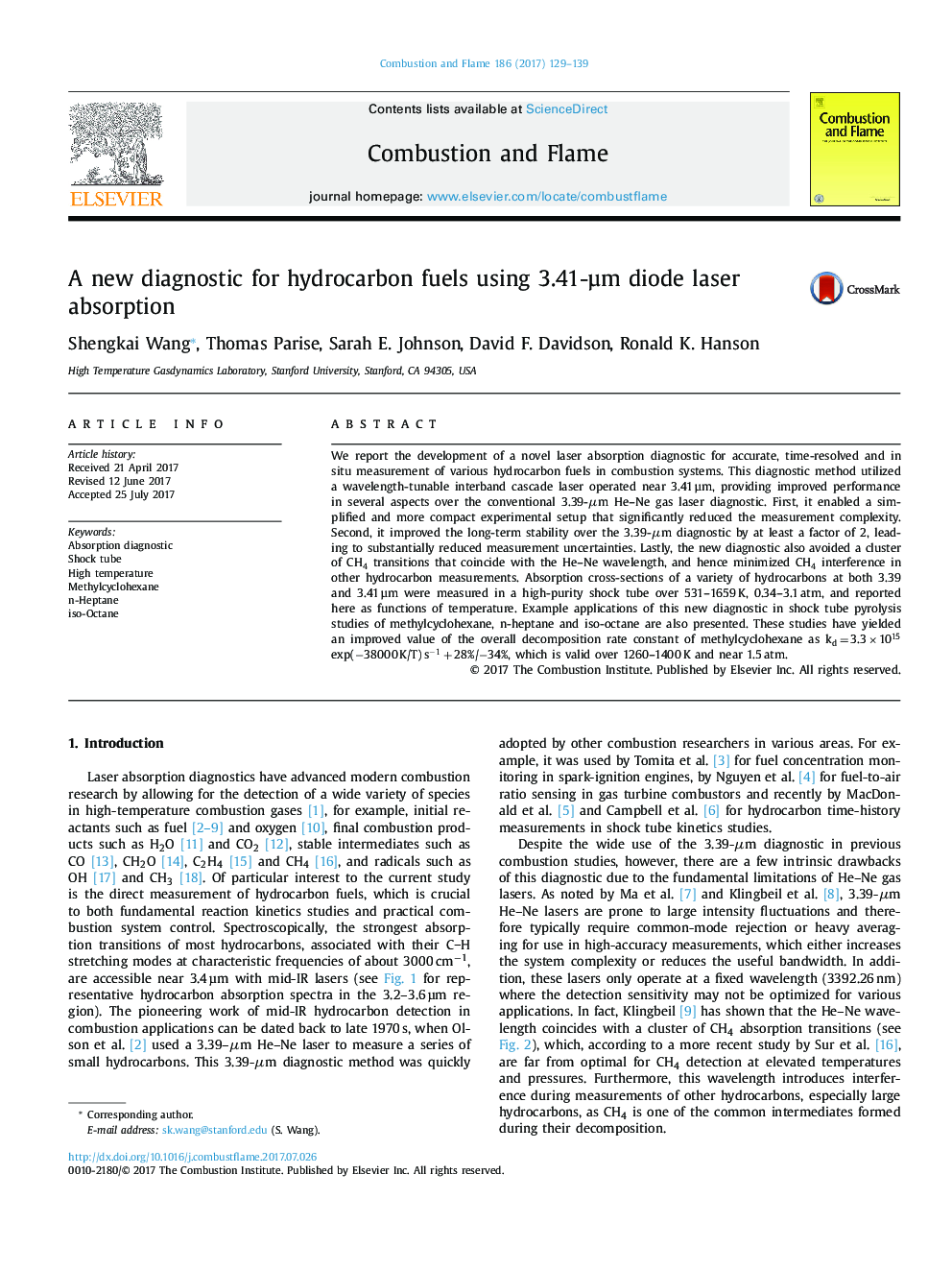| Article ID | Journal | Published Year | Pages | File Type |
|---|---|---|---|---|
| 4764351 | Combustion and Flame | 2017 | 11 Pages |
Abstract
We report the development of a novel laser absorption diagnostic for accurate, time-resolved and in situ measurement of various hydrocarbon fuels in combustion systems. This diagnostic method utilized a wavelength-tunable interband cascade laser operated near 3.41â¯Âµm, providing improved performance in several aspects over the conventional 3.39-μm He-Ne gas laser diagnostic. First, it enabled a simplified and more compact experimental setup that significantly reduced the measurement complexity. Second, it improved the long-term stability over the 3.39-μm diagnostic by at least a factor of 2, leading to substantially reduced measurement uncertainties. Lastly, the new diagnostic also avoided a cluster of CH4 transitions that coincide with the He-Ne wavelength, and hence minimized CH4 interference in other hydrocarbon measurements. Absorption cross-sections of a variety of hydrocarbons at both 3.39 and 3.41â¯Âµm were measured in a high-purity shock tube over 531-1659â¯K, 0.34-3.1â¯atm, and reported here as functions of temperature. Example applications of this new diagnostic in shock tube pyrolysis studies of methylcyclohexane, n-heptane and iso-octane are also presented. These studies have yielded an improved value of the overall decomposition rate constant of methylcyclohexane as kdâ¯=â3.3âÃâ¯1015 exp(â38000â¯K/T)â¯sâ1â¯+â28%/â34%, which is valid over 1260-1400â¯K and near 1.5â¯atm.
Related Topics
Physical Sciences and Engineering
Chemical Engineering
Chemical Engineering (General)
Authors
Shengkai Wang, Thomas Parise, Sarah E. Johnson, David F. Davidson, Ronald K. Hanson,
